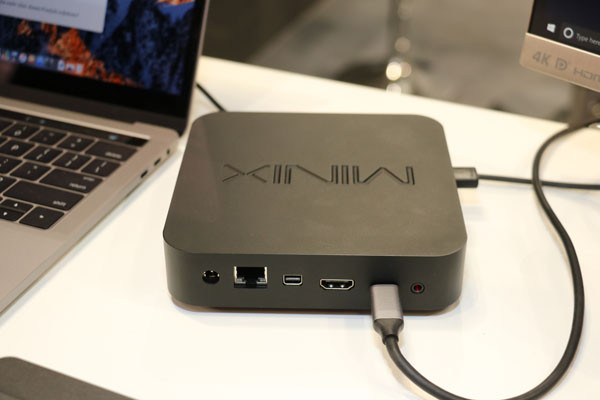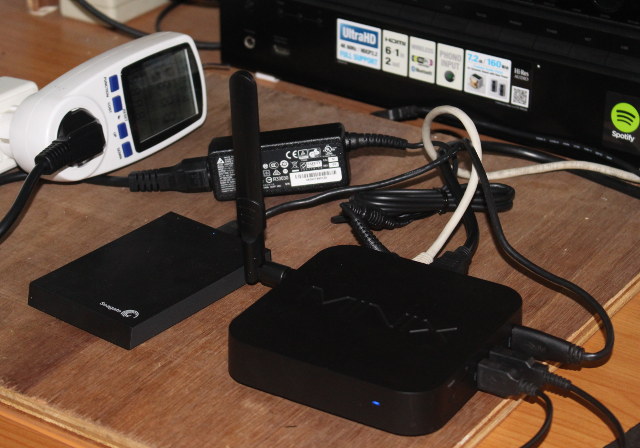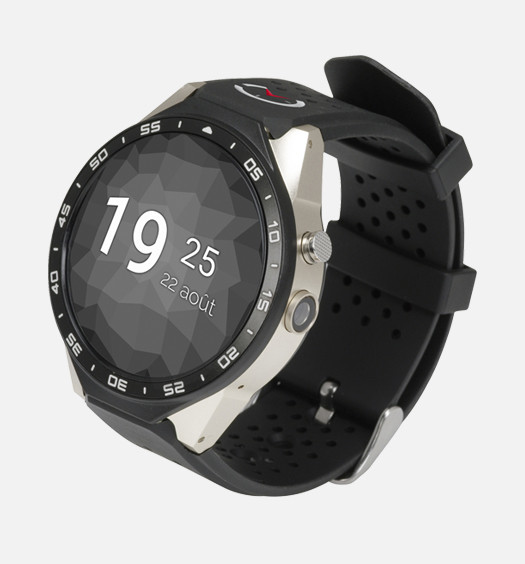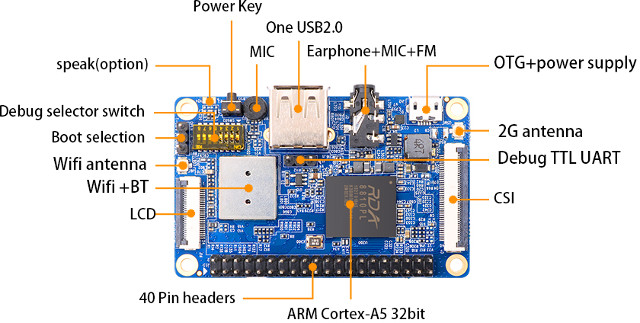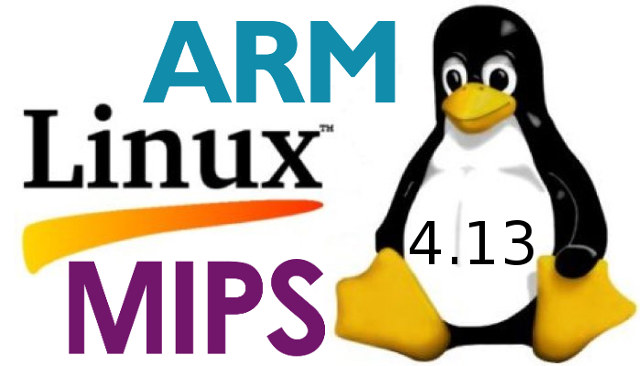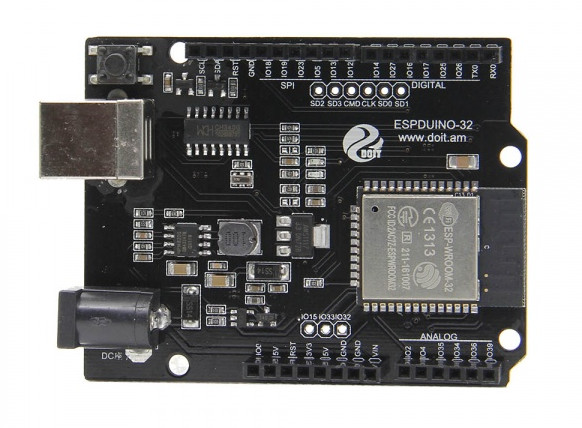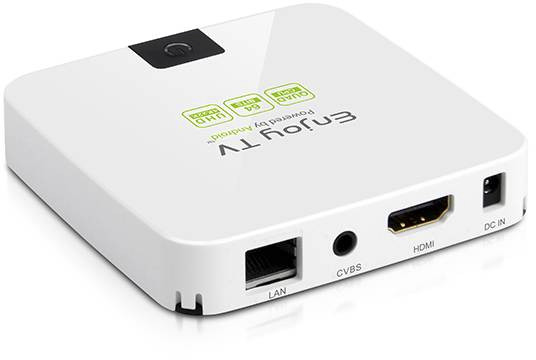Android One initiative aims to deliver low cost smartphones with at least 2-year worth of firmware updates. The program first launched in India in 2014, has since then expanded into more countries, and Xiaomi has just introduced their own Android One phone with Mi A1. Xiaomi Mi A1 specifications: SoC – Qualcomm Snapdragon 625 octa-core processor up to 2.0 GHz with Adreno 506 GPU @ up to 650MHz; 14nm FinFET process System Memory – 4GB RAM Storage – 64GB internal storage, micro SD slot up to 128GB Display – 5.5″ LTPS FHD display with 450nit brightness Camera 12 MP + 12 MP dual rear camera with dual tone flash, autofocus, 2x optical zoom 5 MP front-facing camera 4K/1080p/720p video @ 30 fps; 720p slow-mo video @ 120 fps Connectivity Dual band 802.11a/b/g/n/ac WiFi with WiFi direct and WiFi display support Bluetooth 4.2 Cellular 4G modem; supports Volte/4G/3G/2G on compatible networks […]
MINIX NEO N42C-4 Apollo Lake Mini PC To Launch Soon with SO-DIMM and M.2 Slots
I’ve just completed MINIX NEO Z83-4 Pro review, a Cherry Trail mini PC with Windows 10 Pro, but if you’d like something with a more recent and faster processor, the company will soon launch a MINIX NEO N42C-4 with an Apollo Lake processor, and upgradeable memory and storage. MINIX NEO N42C-4 preliminary specifications: SoC – Intel Pentium N4200 quad core “Apollo Lake” processor @ 1.10 / 2.50 GHz with 18 EU Intel HD Graphics 505 (6W TDP) System Memory – 4GB DDR3L SO-DIMM module (upgradeable to 8GB via 2x SO-DIMM slots) Storage – 32GB eMMC 5.1 flash, 1x 2280 M.2 SSD slot Video Output – HDMI 1.4 up to 4K @ 30 Hz, mini DisplayPort up to 4K @ 60 Hz, USB type C up to 4K @ 60 Hz(video only, no audio); supports for up to 3 independent displays Audio – Via HDMI, miniDP, 3.5mm audio combo jack Connectivity […]
MINIX NEO Z83-4 Pro Mini PC Review – Part 2: Windows 10 Pro
MINIX launched NEO Z83-4 Cherry Trail mini PC last year, but the company has now launched NEO Z83-4 Pro, an updated version with a slightly faster Atom X5-Z8350 processor, Windows 10 Pro (instead of Home), and a a VESA mount kit. I’ve already checked the hardware in the first part of the review, so today I’ll report my experience with Windows 10 Pro. Windows 10 Home vs Windows 10 Pro My main computer runs Ubuntu 16.04, and I’m only using Windows 10 during reviews… But so far all other mini PCs I tried came with Windows 10 Home, and NEO Z83-4 Pro is my first Windows 10 Pro computer. So I had to educate myself, and Microsoft website has a comparison between the two versions of Windows 10. Windows 10 Pro supports all features of Windows 10 Home, plus the following: Security Windows Information Protection – Formerly Enterprise Data Protection […]
Connect Watch Runs AsteroidOS Open Source Operating System (Crowdfunding)
At the beginning of last year, we discovered AsteroidOS (hobby) project aiming to provide a Linux based open source operating system working on some Android Wear smartwatches. At the time the OS relied on Android drivers working with libhybris, Qt5/QML for apps, and only supported LG G Watch. Since then, Florent Revest has continued development, with more watches being supported from Samsung, Asus, and other brands, and a French startup has decided to design and bring to market Connect Watch running AsteroidOS. Connect Watch specifications: SoC- Mediatek quad core processeur @ up to 1.39GHz MTK System Memory – 512MB or 1GB RAM Storage – 4 or 8GB flash Display – 1.39″ round Amoled display with 400×400 resolution Audio – Built-in speaker Connectivity Bluetooth Optional GSM ( 850/900/1800/1900MHz) and 3G WCDMA (850/2100MHz) support with nano SIM card slot GPS Camera – 2.0 MP; records to 720p Sensors – Heart rate monitor […]
Orange Pi 2G IoT Board Can Now Boot Linux from NAND Flash
Orange Pi 2G IoT is a $10 development board with a 2G cellular modem that was launched last March. The board is based on RDA Micro RDA8810PL processor designed for cheap Android phones, but Linux support was also promoted, and an RDA8810 Android SDK was released in April. It was the first time RDA8810 was used in a development board, and unsurprisingly it was, and still is, a challenge to use such board, as software support is on-going… So people who purchased the board has troubles with controlling GPIOs, or booting Linux from the SoC’s built-in NAND flash, instead reverting to booting from a micro SD card. Luckily, Orange Pi forum’s user surfero75 worked on the latter, found a solution, and posted instructions in Spanish. He wrote those instructions leveraging the work done by Aib user, and I summarized the main steps below explaining how install and boot from NAND […]
Linux 4.13 Release – Main Changes, ARM & MIPS Architectures
Linus Torvalds has just announced the release of Linux 4.13 and a kidney stone…: So last week was actually somewhat eventful, but not enough to push me to delay 4.13. Most of the changes since rc7 are actually networking fixes, the bulk of them to various drivers. With apologies to the authors of said patches, they don’t look all that interesting (which is definitely exactly what you want just before a release). Details in the appended shortlog. Note that the shortlog below is obviously only since rc7 – the _full_4.13 log is much too big to post and nobody sane would read it. So if you’re interested in all the rest of it, get the git tree and limit the logs to the files you are interested in if you crave details. No, the excitement was largely in the mmu notification layer, where we had a fairly last-minute regression and […]
ESPDUINO-32 & Wemos D1 R32 ESP32 Boards Support (Most) Arduino UNO Shields
The compact ESP32 NodeMCU like board are great for many project, but in case you plan to leverage your existing Arduino shield, it’s more convenient to have a compatible board. We’ve previously seen Noduino Quantum board sold for 99 RMB on Taobao, and $25.90 on AnalogLamb, but doit.am has designed a cheaper model called ESPDUINO-32 that supports shields compatible with Arduino UNO, and sold for $13.73 on DealExtreme. ESPDUINO-32 board specifications: Wireless Module – ESP-WROOM-32 based on Espressif ESP32 dual core Tensilica LX6 processor with 802.11 b/g/n WiFi and Bluetooth 4.2 LE Expansion – Arduino UNO headers with SPI, I2C, digital I/Os, 1x analog input up to 3.2V, 5V, GND USB – 1x USB device port Misc – Button Power Supply – 5 to 12V input via DC jack or Vin pin Dimensions – 66 x 53.3 x 13.5 mm The board can be programmed with the Arduino IDE selecting […]
Geniatech ATV495 Max & ATV598 Max TV Boxes Run Android TV OS
Most TV boxes coming from Chinese manufacturers are running Android operating systems based on the mobile version, which gives you more flexibility, but for some use cases such as watching online videos, is not as user-friendly as Android TV operating systems that’s developer by Google specifically for a TV experience. However, it looks like there’s a shift now, as I’ve heard several companies are in the process of applying for an Android TV License from Google, and Geniatech is one of the first to unveil two boxes running Android 6.0 TV operating system, that should soon be certified by Google, with ATV495 Max and ATV598 Max. [Update: The company has now removed the link to the press release (see cache), since certification is not complete yet] Those models are updated from their ATV495X and ATV598E models running Android 6.0, with apparently the same hardware but upgraded to Android TV OS. […]



